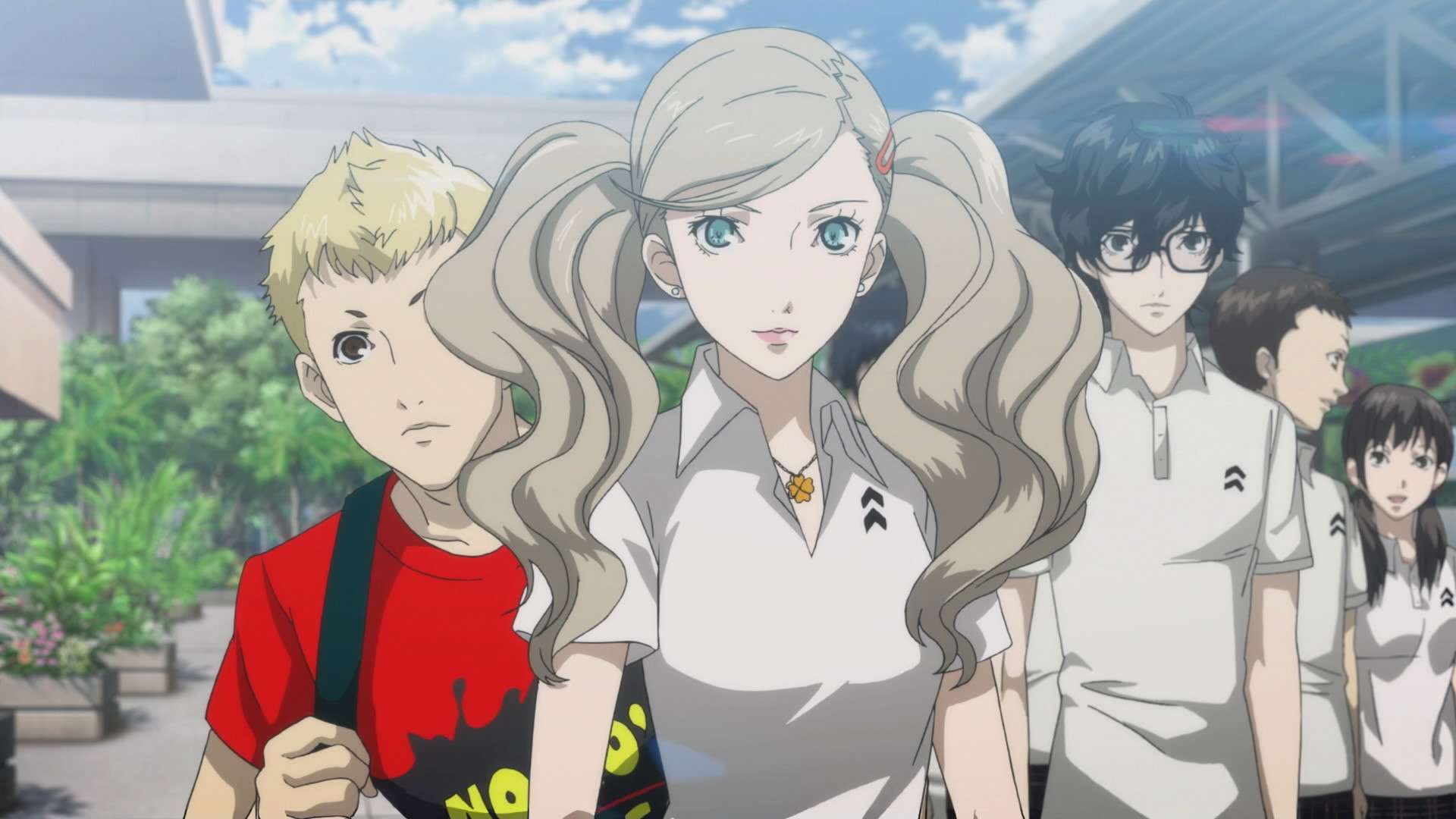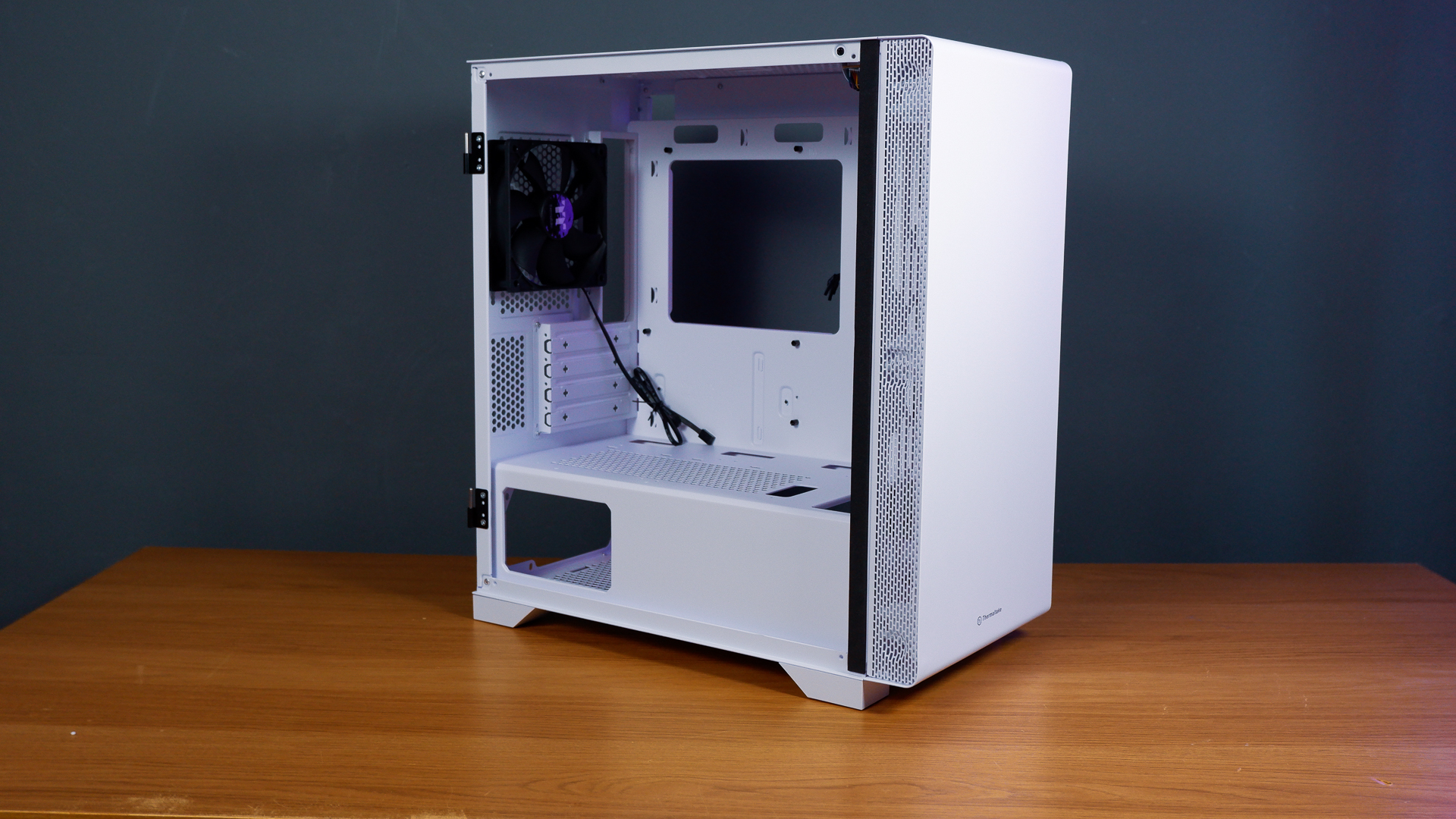Our Verdict
Endlessly slick, the battles and story are a joy to play through. No turn-based JRPG feels as good as this.
PC Gamer's got your back
What is it? Teen angst mind heists in the slickest turn-based JRPG you'll ever play.
Expect to pay $60/£50
Developer Atlus
Publisher SEGA
Reviewed on Ryzen 7 1700X, RTX 2080 Super, 32GB RAM
Multiplayer? No
Link Official site
My team of anime mind-thieves deftly jump across chandeliers, then take cover to avoid the gaze of a patrolling guard in the corridor that follows, zig-zagging behind him to initiate an ambush. As the jazzy soundtrack reminds me, he never saw it coming, and taking advantage of the weakness of the demon who lives inside him—a cute looking pumpkin in a witch hat—we tag-team attacks to wipe it out in seconds.
It's the kind of dynamism you might not expect from a turn-based JRPG, but Persona 5 Royal is fine with bucking tradition to execute this near-flawless adventure. Even a few years since its original release, this is the genre's pinnacle.
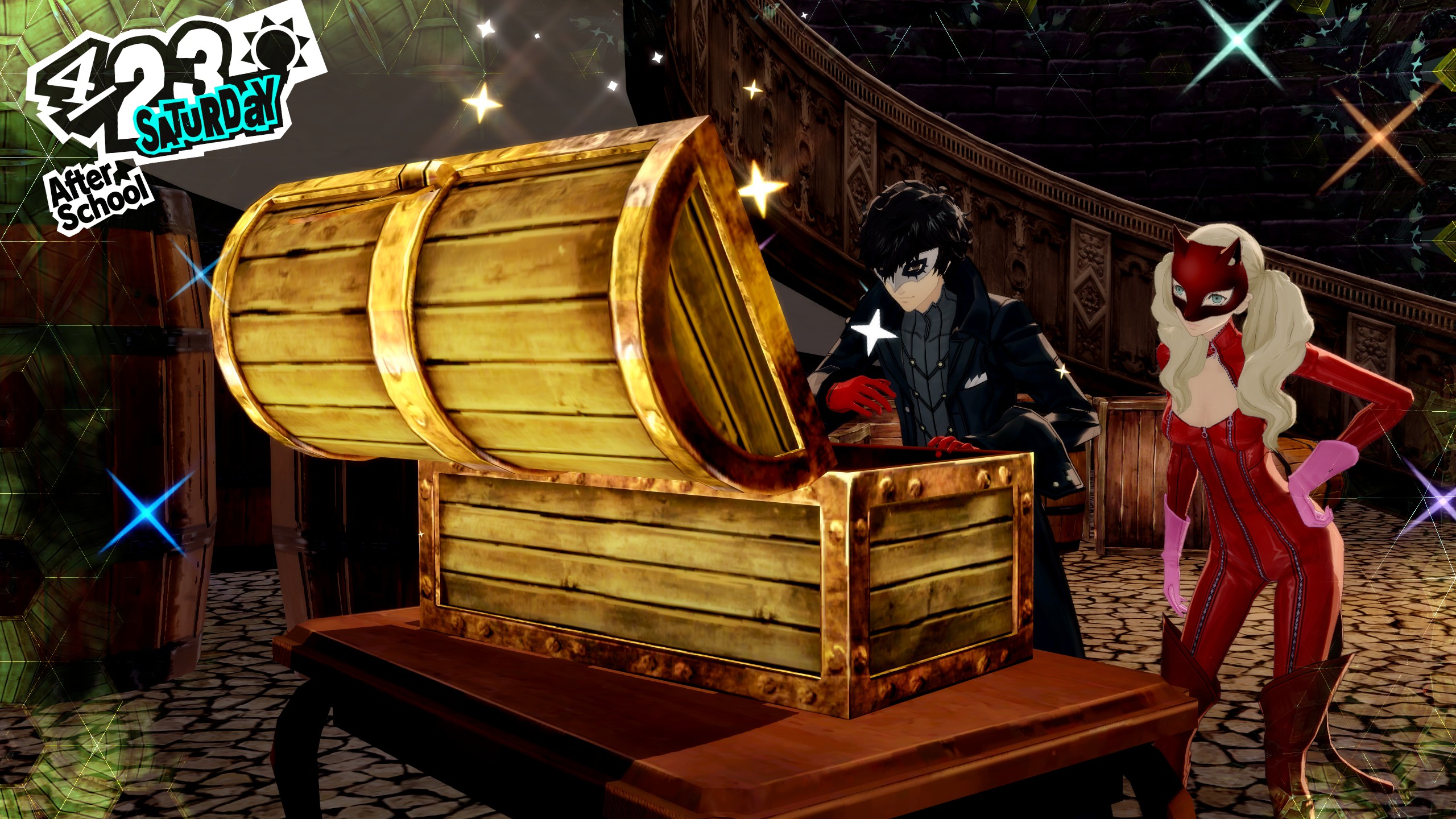
Despite being later to the heist on PC, this is an excellent version—perhaps the best one on the market. While clearly intended for controller play, keyboard and mouse support adds a nice, direct layer to this largely slow-paced, tactical affair (the cursor even turns into a neat thief's dagger). Graphical options are limited, but get the job done, and the option to play with 120fps—as well as 30 and 60fps options—adds to P5R's already slick vibe.
That fluidity and sense of style permeates every layer of P5R, which seemingly has an answer for every reason players might be bored of the genre. Its combat is comfortable operating in both an arcadey mode that has you chaining together weaknesses to clear boards almost like a puzzle game, and boss fights that require a thorough use of its toolset. Its story of teenagers rebelling against an unjust world of adults in modern day Tokyo feels refreshing in its parallels to our real-world. Its main dungeons are far cries from straightforward corridors, instead featuring environments worthy of exploration as you scoop up shinies.
The treasure you'll be picking up goes beyond gold trinkets to sell back at the equipment shop. You'll be stealing hearts—quite literally. You play as a teenager with an unjustly earned rap sheet, carted off to start anew with a family friend, enrolling in Tokyo's Shujin Academy. Discovering a strange phone app that refuses to be deleted, you end up involved in another case of an adult abusing their authority. The school's lecherous gym teacher is both injuring the volleyball team he teaches through cruel training, while also treating the girls in his care as sex objects. It's gross, and the game goes to great lengths to make the complicated mental toll of that kind of abuse clear.
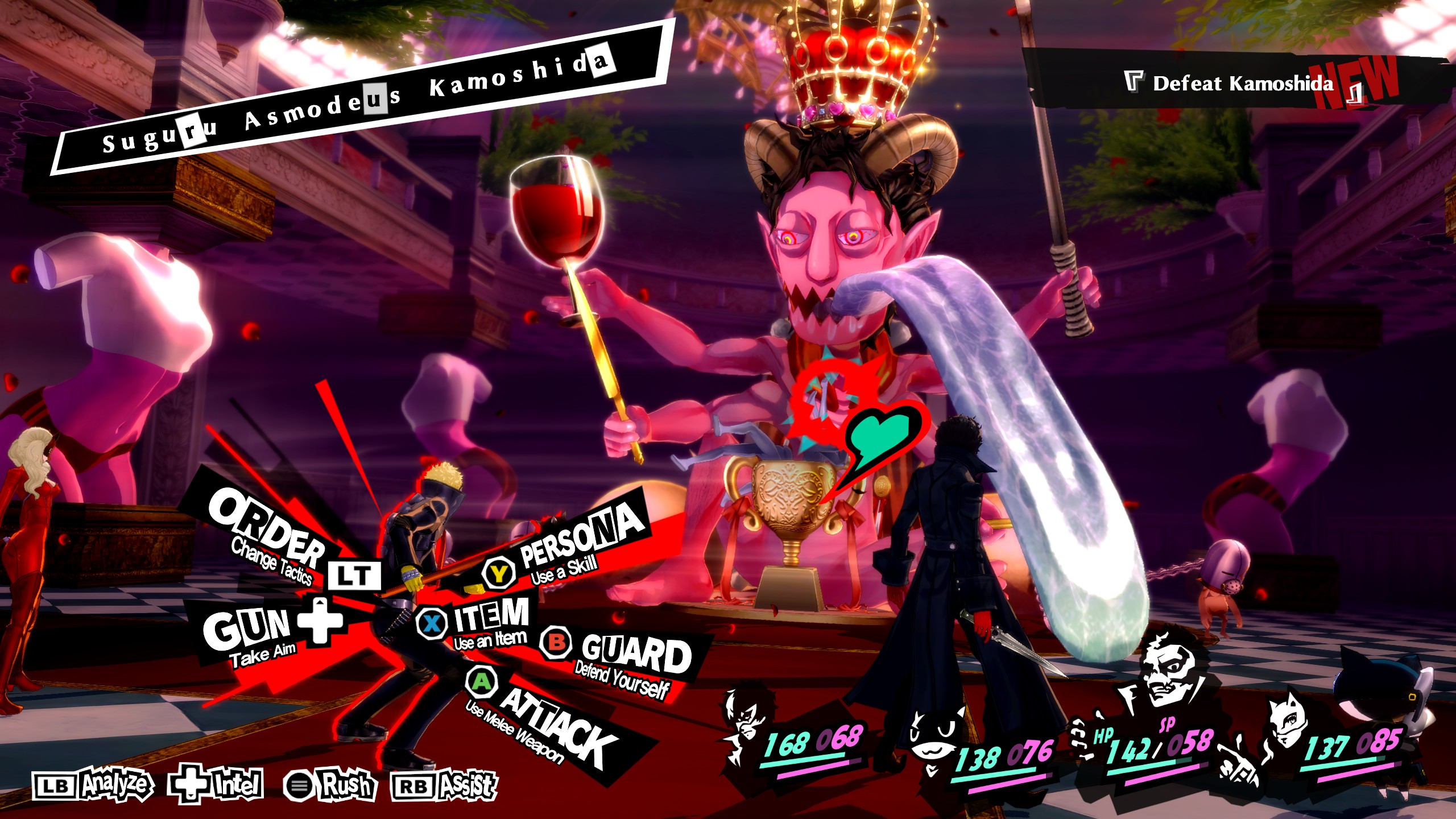
The app, the Metaverse Navigator, allows users to enter the shared consciousness of Tokyo, where particularly nasty individuals who wield influence have grotesque Palaces. Guarded by demons (who are mostly inspired by real world mythology from many cultures, materialised in this world via that shared belief), it's a deathtrap for your average passerby. But you (and later your friends), are able to draw on that demonic power for yourself by reckoning with the mask society has forced you to wear, dramatically tearing it off to evoke your persona in battle.
Awakening to the power also decks you out in the duds of a modern-day gentleman thief, after which you take on the codename Joker to match your long leather coat and gloves. Having to publicly call-out the teacher to manifest the treasure of his heart so you can abscond with it, you and pals take the name the Phantom Thieves. After successfully getting away with it—which results in him admitting to his crimes and resigning—the crew decides to press on for a whole JRPG's worth of adventures, each dungeon a new mind-heist through some of the most devious brains in the city, with a new theme to match.
Hang loose
Making your way through the story will take almost a full year. In-game, that is. In real-life it'll easily take over 100 hours if you include this edition's chunky, post-game epilogue. Starting school in April, a calendar system takes you through each day. It adds to the sense of always pushing forward, whether that's to see what each new dungeon will hold, or just chasing the game's many bouts of downtime where you can just hang out with friends. This in turn either strengthens their powers in battle, or awards you buffs, depending on if they're a party member or not.
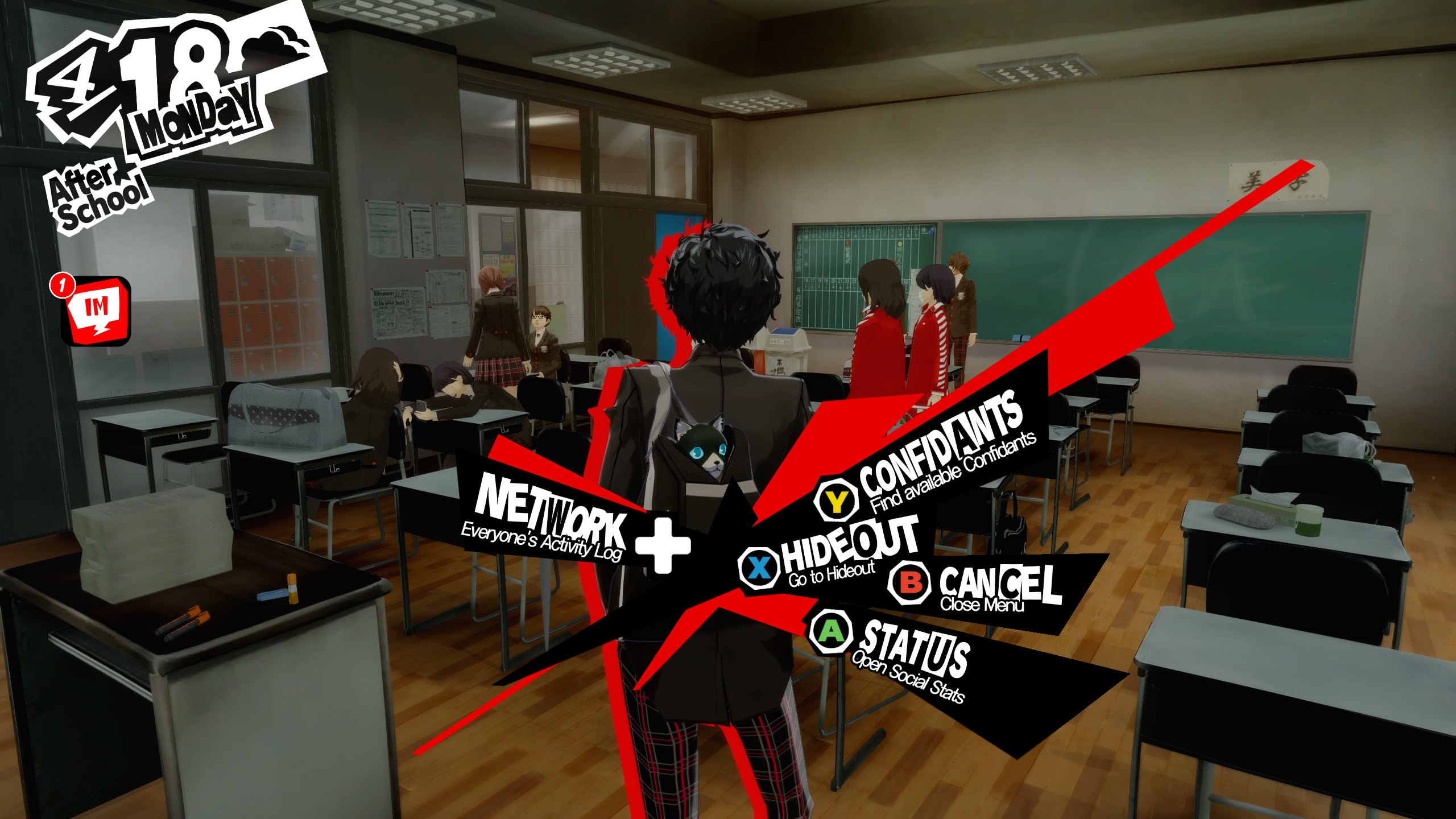
P5R's story is a great tale that'll resonate with anyone who remembers being a misunderstood teen, and the characters still pack enough charm to stack up against the genre's best. Even so, there are still some missteps in how it handles its material, though improvements in this release have been made—such as an off-colour gay joke that's been toned down. More often than not, the hits land, and you'll find yourself getting emotional at your pals' tragic story arcs. Less successful is the strange romance you can initiate with your homeroom teacher (especially so, given the theme of the game's first dungeon), and how some additional scenes in the Royal release leaves a fan favourite 'ships' feeling queerbaity.
By not being able to do everything, the game empowers you to follow your nose, and get into your own groove.
Back to what you can do—there's so much of it, it'll feel like you never have enough time in the day. To max out every character or unlock everything you'll need to staunchly follow a guide—which I wouldn't recommend. Instead, by not being able to do everything, the game empowers you to follow your nose, and get into your own groove. Depending on the day of the week or even weather, the people who want to hangout with you or activities you can take on across the daytime and evening change. The school shop's health-restoring yakisoba bun is so popular you can only buy it once every Friday, for example. Studying in the rain will give an extra boost to Knowledge. It's a testament to the game's strength that even with its lengthy runtime, you'll rarely get bored.
Note that I said "rarely", not "never". Shin Megami Tensei's (of which Persona is a spin-off) obsession with near-endless dungeons continues with Mementos, a subway-themed proc-gen dungeon representing the generic shared consciousness of the city, with new chunks of floors to descend to opening up the further you get in the game. It's not optional either, as you will have to slog through it whether that's piece-meal or in one big chunk. It's better here than it was at launch, your cat-pall Morgana's cat-bus form now geared up to reach new top speeds, collector Jose offering new rewards for exploring, and more side missions to mop up. It's not the worst lengthy JRPG dungeon (and you can blitz to the exit on each floor if you want), but it's still a long one.
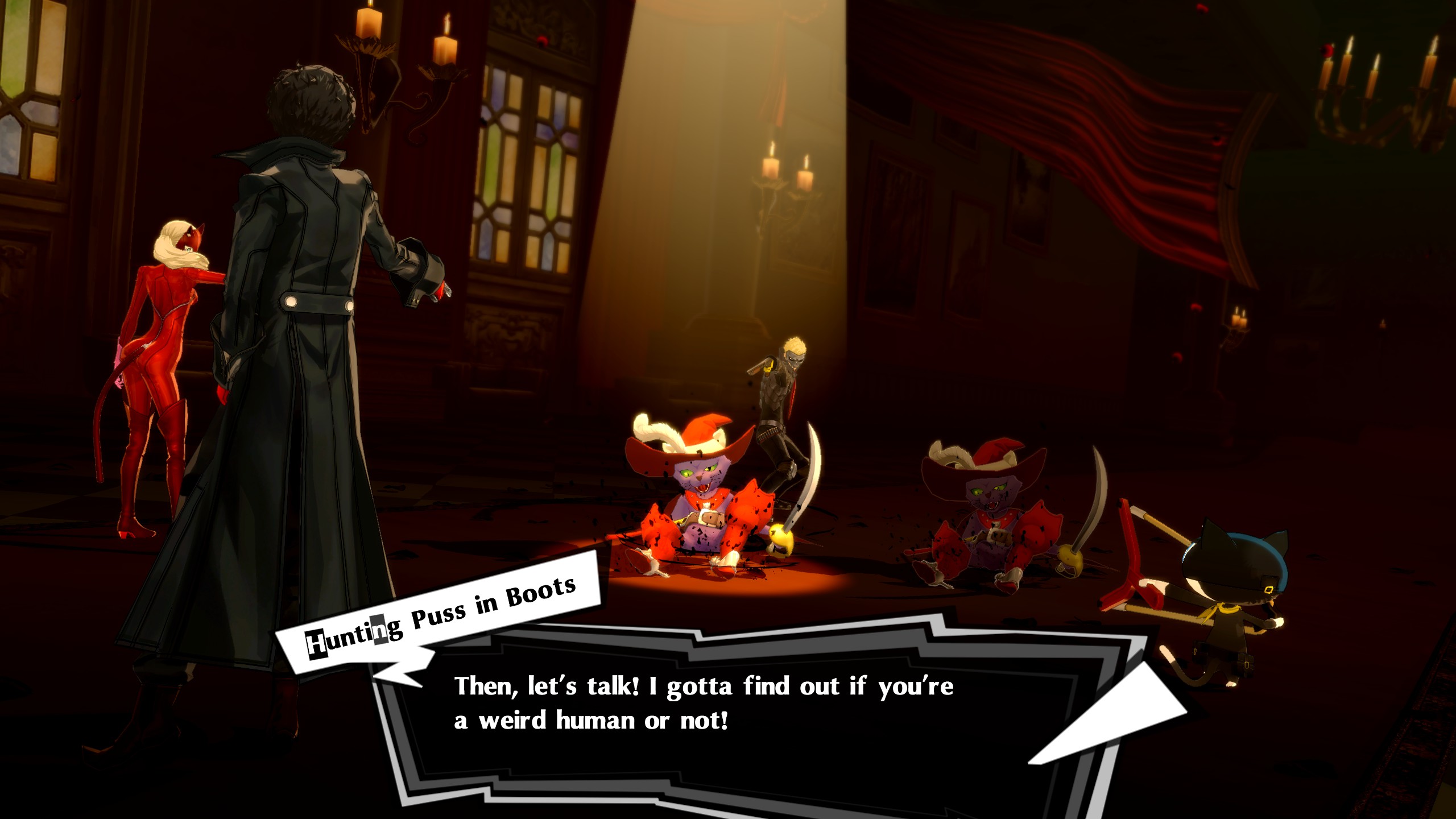
Demon days
Thankfully, it's not just the calendar that keeps things moving. Everything is slick, right down to the menus. Everything is designed to keep you pushing forward. Each battle command that bursts from your party, for example, is easily accessed from your controller or keyboard, so you don't spend too much time navigating. It sounds minor, but it makes battle snappy, especially as you learn each area's stable of demons, and how to exploit their weaknesses. A helpful "advice" command even quick-navigates you to target discovered enemy weaknesses.
Tactically, a good fight in Persona 5 is all about keeping up that momentum. You'll enter most fights with advantage, thanks to a cover system that means you can jump enemies roaming the map with ease. In combat, if you bust an enemy's skull with their elemental weakness, whack them with a critical hit, or score a technical hit on a debuffed enemy, you can knock them down and score a "one more".
Rather than just giving a party member another attack, the "one more" can also be handed off to an ally using the Baton Pass. That means from one opening, you can chain a series of weaknesses. Down all foes, and you'll initiate a hold up, from which you either perform a spectacular, high-damage All-Out Attack on them; or natter with them instead. The latter can be used to obtain all sorts of goodies from items to cold hard cash, or you can forge a contract with them to join you.
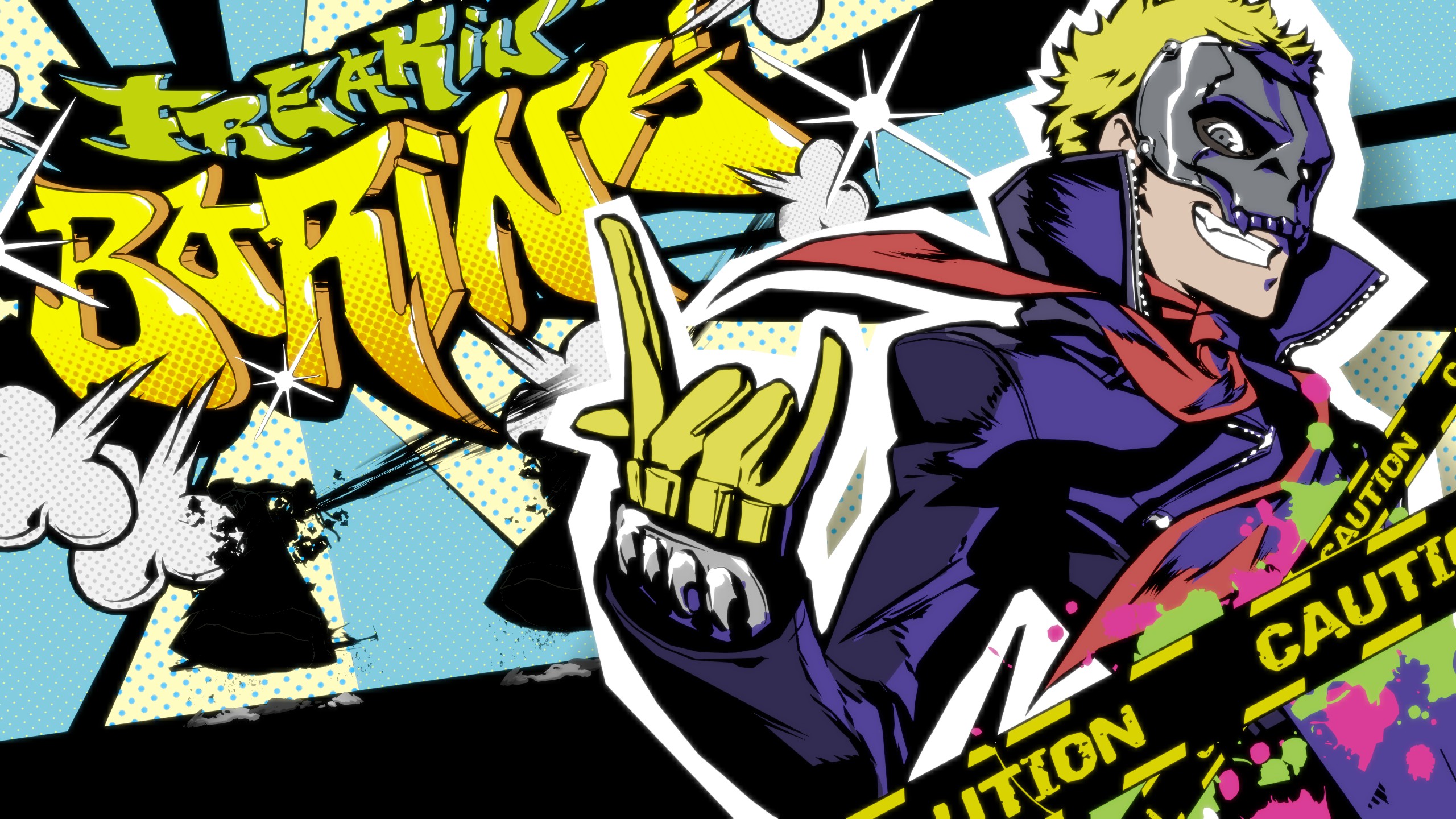
Unlike the rest of the party, Joker has the unique ability to befriend more than one demon, bringing a stock of them into battle (starting at six), which can be switched between each turn. A Joker-of-all-trades, that means he can bring immense utility to brawls, depending on how you kit him out. While P5R sports easy modes (and an extra-easy safety mode that allows you to get back up when you die), even those will require some thoughtful plays. Thank your past self when you end up needing to rely on that demon you picked up with a resistance to dark insta-kills, for instance.
You won't just be welcoming demons from the field into your arms, but creating them yourself. The aetherial velvet room is open to you, where mysterious entities will talk you through the art of demon fusion, allowing you to combine two together into a new one who can inherit some of the previous bunch's skills. While each demon does level-up and earn new skills—and can even feed on other ones for direct-XP in this version—they won't match up to your own character growth. Jumping ahead levels by making literal deals with the devil (Satan is here, yet ironically wields "severe" ice powers,) is the way to get ahead, and means you'll constantly be mastering new powers and party set-ups. It's just another lockpick in P5R's set of thieving tools that allows this RPG to constantly keep things fresh across a lengthy runtime.
P5R is just a game that goes down smoothly. There's an urge to see both the large story beats unfold, and to pack in as many meaningful character moments into your schedule as you can. It might not be what you'd expect from quite possibly the longest JRPG you'll ever play, but each of those many hours is filled to the brim with inventiveness that—quite frankly—can make it hard to go back to other games in the genre. The dungeons, the battles, even the hangs-outs at burger joints are just that much better. I could play something else, but the chance to re-plan my schedule on New Game Plus is looking awfully tempting.
Endlessly slick, the battles and story are a joy to play through. No turn-based JRPG feels as good as this.
